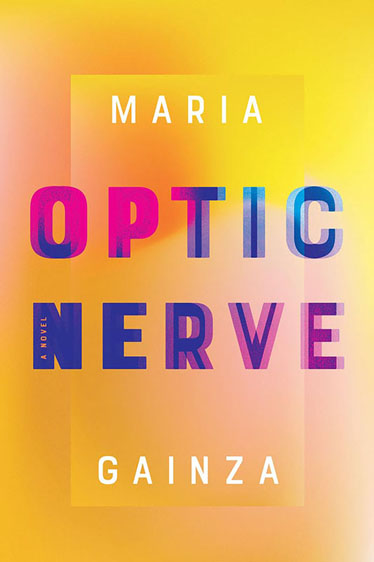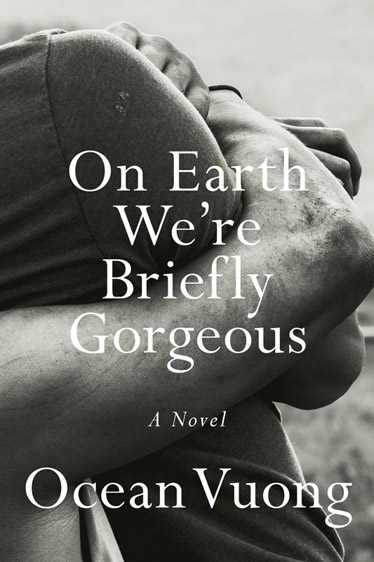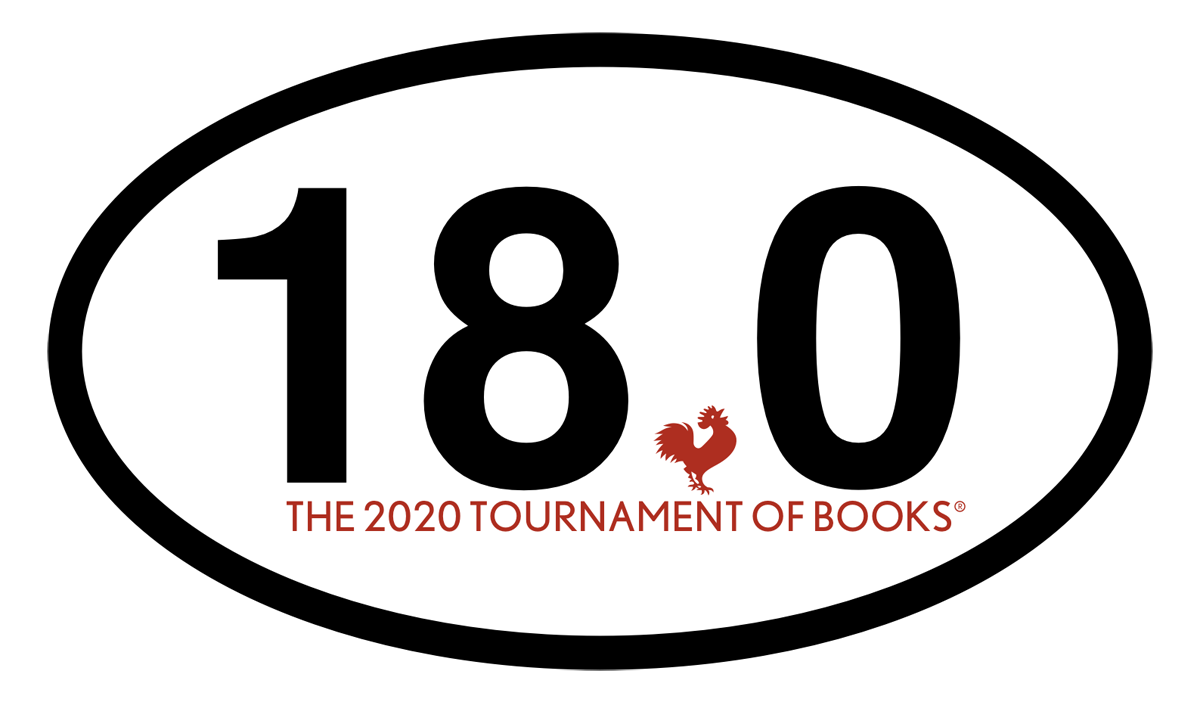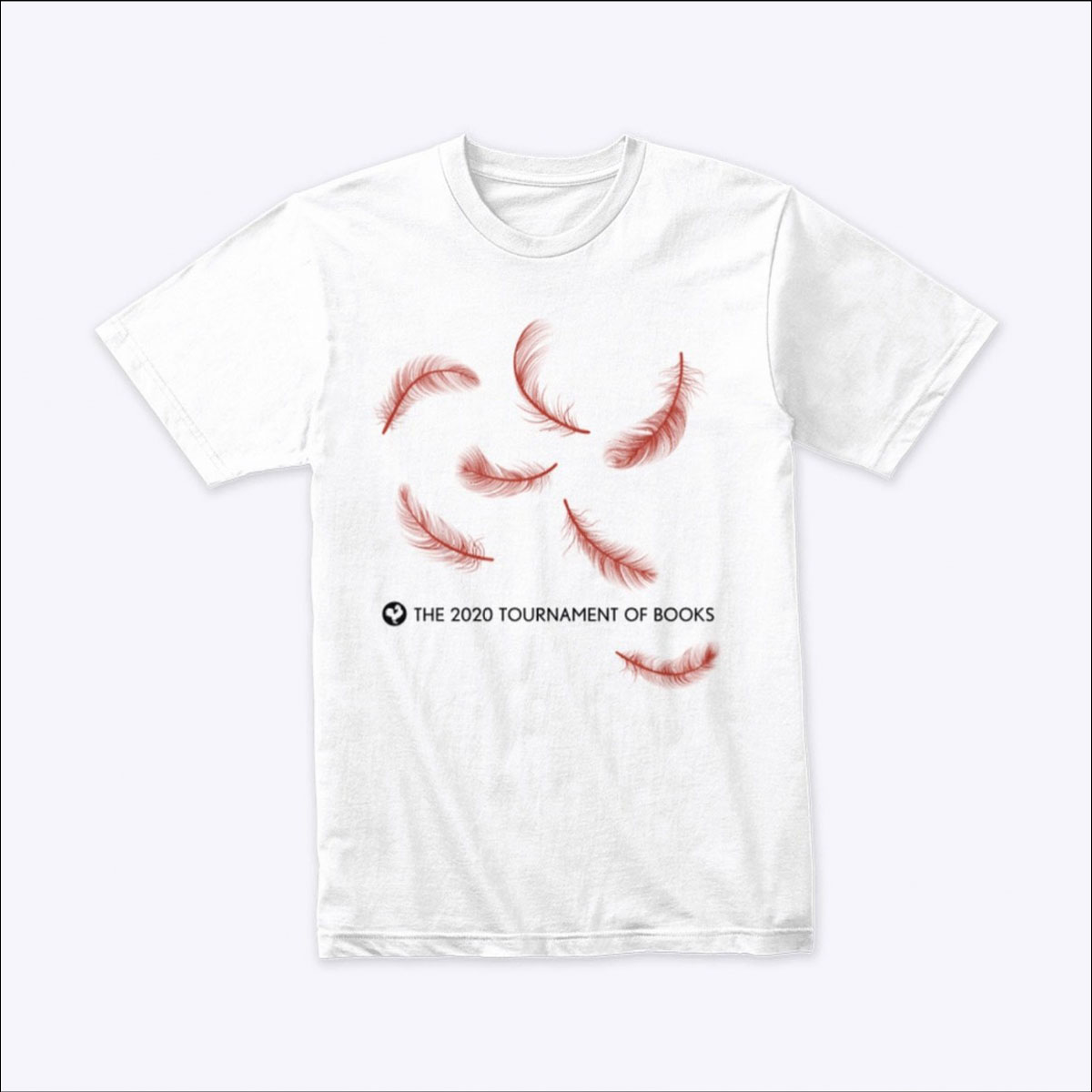Ethan Kuperberg: My experience reading On Earth We’re Briefly Gorgeous and Optic Nerve in tandem with the objective of choosing one book to move forward in a competitive tournament has been one long anxiety attack.
I began On Earth We’re Briefly Gorgeous and immediately felt breathless. Here is a novel that simultaneously interrogates the intersection of country, class, and race, authentically captures the very experience of memory, and finally, and painfully, investigates the relationship between a mother and son. I can’t speak at length for the first two, but as a son who also painfully investigates a relationship with a mother fairly frequently, I found myself forgetting to inhale multiple times while reading—reading On Earth felt like a refreshing reminder of what prose is capable of doing. The novel illustrates the sensation and paradox of memory so vividly—its slipperiness, immutability, artificiality, truth—that the thought of writing about this novel, let alone judging it, was almost enough to induce a panic attack. “Memory was a choice. You said that once, with your back to me, the way a god would say it.” I’m nervous just trying to describe it.
And if the thought of writing about On Earth was fraught, Optic Nerve raised the stress stakes. “It gives me a feeling of my singularity: a clear sense of the brutal solitude of this slab of sweating flesh that is me,” is both a description in the novel of the existential experience of seeing a Rothko, and also how I felt reading the book. And I mean that as a compliment. Optic Nerve puts into words the feeling of engaging with art on a level beyond words—of being entranced and haunted and even possessed. Writing about this writing about art feels like singing a song about how good Beyoncé is at singing. And I’m tone-deaf.
I felt panicked at the idea of selecting either of these books to not advance over the other respective book for the sake of the competition. How was I supposed to do this? I thought about how each book made me feel and think. I looked at each of the covers—not a similar typeface, but not terribly different. I reread the email asking me to be a judge and looked for clues. Why was I asked to do this? Sure, I’m a writer, but I primarily write for television, so does that count? Will a poorly made decision on this round of Tournament of Books prevent me from ever being a novelist? What if I run into one of these novelists in 20 years at a party, and they remember that I did not select their book to move forward in the Tournament and they throw their drink at me? Is that very question narcissistic? Do I even agree with the concept of pitting two pieces of art against each other? Is human consciousness anything more than an illusion? Could I pick both books?
It was then that I reread a quote from Optic Nerve: “Isn’t all artwork—or all decent art—a mirror? Might a great painting not even reformulate the question what is it about to what am I about?” Maybe reading these two books was in and of itself a mirror—maybe the question isn’t which of these books to select as a quote-unquote winner but rather my own relationship to being a winner. I sucked it up and emailed that I was choosing Optic Nerve. I thought both books were worthy of acclaim and, in this context, victory—but the stories in Optic Nerve about how we engage with art have stayed with me, and also actively helped me figure out how to relate to them. It’s like choosing to date your therapist. That analogy will probably make more sense if I elaborate, but I don’t want to overthink it.
From our match sponsor: Ocean Vuong visited Quail Ridge Books in late 2019, and many booksellers cited it as their all-time favorite event. You can order copies of On Earth We’re Briefly Gorgeous (or any other book in the Tournament) from Quail Ridge Books with FREE SHIPPING (and get a free official Rooster sticker)! We really appreciate your patronage in these challenging times. Thank you for supporting community bookstores!
Match Commentary
By Vivian Wagner & Rosecrans Baldwin
Rosecrans Baldwin: Today we’re welcoming Vivian Wagner, another of this year’s Reader Judge finalists, into the commentary booth. Vivian, will you please introduce yourself to the audience?
Vivian Wagner: I’m an associate professor of English at Muskingum University in New Concord, Ohio. I’ve been following the ToB for several years. I first learned about it because I like Field Notes, and one year I happened to order a copy of the ToB Rooster Field Notes notebook. I discovered that I liked having the checklist of books to read. It felt a bit like a course reading list, and as a professor, I like that kind of thing. It gave me a way to organize and focus my reading life, and it introduced me to new books I might not otherwise have read.
Rosecrans: Love Field Notes! So, the judge right away describes the experience of comparing two books, and needing to choose one over the other, as an anxiety attack. Does anxiety ever play a part in your daily reading?
Vivian: I’m not an especially anxious reader, though I might be if I had to be a judge in this contest! I guess, though, that I do evaluate writing all the time—as a general reader, a professor, and a book reviewer—and I do tend to make judgments. I don’t especially like ranking one novel as better than another, however, since each novel has its own merits, its own world, its own strengths.
Rosecrans: But imagine you’re a Rooster judge. Broadly speaking, what are the most important criteria to you as a reader? Also, have those criteria changed since you joined the academy?
Vivian: As a reader, I look for books that move me personally, that add some value to my life, that broaden my perspective or deepen my empathy. As an English professor, I try to introduce my students to books that will do the same for them.
Rosecrans: One of my favorite lines in the judgment is “It’s like choosing to date your therapist.” I still don’t know exactly what that means, and when I asked the judge to elaborate, he resisted. You’re a professor—can you unpack it for me?
Vivian: Honestly, I’m really not sure what he meant by that. Perhaps, in relation to Optic Nerve, he meant that the novel helped him personally to work through issues related to art and creativity, and therefore it felt like a conflict of interest to choose it as the best? I think that dating one’s therapist, however, is never a good idea, whereas judging a book as superior because it’s had a personal impact is just fine.
Rosecrans: So, this judgment, much like Optic Nerve, is largely about the judge questioning how he relates to art—which is something we sorta intended as the inherent mission (if there can be said to be one) of this whole Rooster thing, to press ourselves into examining how we make choices about what it is in books that we like and favor, or dislike, or find repellant. What do you make of the idea of comparing two works of art?
Vivian: I think comparing works of art is a valuable exercise, and it tells us as much about particular readers as it does about the texts themselves. As a reader, I actually preferred On Earth We’re Briefly Gorgeous over Optic Nerve, but I found the judge’s comments intriguing and engaging. His discussion helped me to see Optic Nerve differently, and it also helped me to remember how while I was reading that book I, too, found myself thinking about the role art plays in shaping our perceptions and experiences. Reading always involves conversations between texts, writers, and readers, and one of the things I love about ToB is the way it encourages and fosters these conversations.
Rosecrans: Let me ask, why did you prefer On Earth?
Vivian: I appreciated the sustained narrative and emotionality of On Earth We’re Briefly Gorgeous. I found Optic Nerve a bit too scattered and fragmented, and it felt more like an intellectual exercise than a novel.
Rosecrans: Final question for the English professor: Comparative Literature versus the Tournament of Books. Who are you advancing?
Vivian: Can I choose both?
Rosecrans: Of course! Big thanks to Vivian for joining us today. Let me turn it over to Andrew for a quick announcement.
Andrew Womack: Those of you who are subscribed to the Rooster newsletter may have seen this over the weekend, but in case you didn’t, we’ve just added a 2020 Finisher Sticker to the TMN Store.
If you read—or let’s be real, DNFed—all the books in the 2020 ToB, then here’s a way to show off your achievement. (As a reminder, Sustaining Members get 50% off all merchandise at the TMN Store. Please take a moment to find out why we're asking for your help, and consider joining us today.)
Now over to Kevin for our latest Zombie status!
Kevin Guilfoile: OK, coming in hot with a breaking Zombie update. We’ve run the double-check through the triple-checker and after many matches of status quo, On Earth We’re Briefly Gorgeous has enough support to elbow its way into Zombie contention. This means that, if the Zombies were held today, Normal People and On Earth We Were Briefly Gorgeous would be our grave-robbin’ Tom Robbinses.
(Has anyone else noticed that the potential zombies this year have so far fallen within a very narrow alphabetical range. Don’t know what to make of that.)
Sadly, we have to say bon voyage to Nothing to See Here, at an especially bad time to be getting on a cruise. That’s a bit of a bummer for me. I don’t think John and I got to talk about it, but I really enjoyed that one.
Tomorrow, our 2020 Reader Judge, Heather Cothran, will decide between Trust Exercise by Susan Choi and We Cast a Shadow by Maurice Carlos Ruffin, and John and I will be back in the booth. See you then!
New 2020 Tournament of Books merch is now available at the TMN Store. As a reminder, Sustaining Members receive 50 percent off everything in our store. To find out why we’re asking for your support and how you can become a Sustaining Member, please visit our Membership page. Thank you.
Welcome to the Commentariat
Population: You
To keep our comments section as inclusive as possible for the book-loving public, please follow the guidelines below. We reserve the right to delete inappropriate or abusive comments, such as ad hominem attacks. We ban users who repeatedly post inappropriate comments.
- Criticize ideas, not people. Divisiveness can be a result of debates over things we truly care about; err on the side of being generous. Let’s talk and debate and gnash our book-chewing teeth with love and respect for the Rooster community, judges, authors, commentators, and commenters alike.
- If you’re uninterested in a line of discussion from an individual user, you can privately block them within Disqus to hide their comments (though they’ll still see your posts).
- While it’s not required, you can use the Disqus
tag to hide book details that may spoil the reading experience for others, e.g., “ Dumbledore dies .” - We all feel passionately about fiction, but “you’re an idiot if you loved/hated this book that I hated/loved” isn't an argument—it’s just rude. Take a breath.





